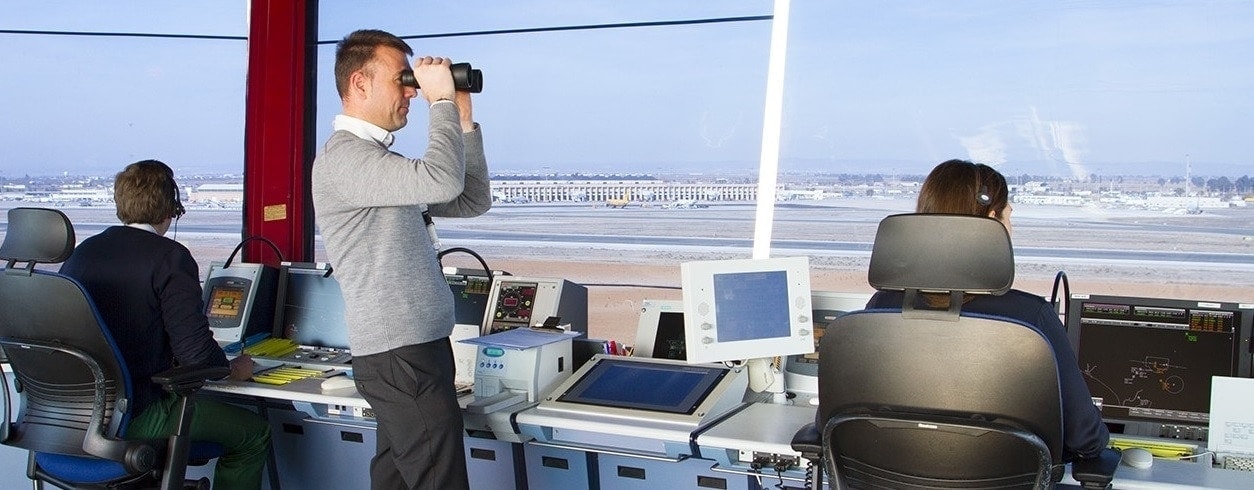
FerroNATS is the air traffic control company made up of Ferrovial and NATS that operates nine of the twelve control towers deregulated in September 2011. This week they have participated in an event focused around air traffic management, the World ATM Congress, which took place in Madrid from the 8th to the 10th of March. To mark this occasion, we interviewed industrial engineer Pablo Caballero who since January 2016 has been Assistant Director of FerroNATS.
Interview with Pablo Caballero from FerroNATS
- What does handling half a million flights and 30 million passengers per year mean for FerroNATS?
FerroNATS currently manages one out of every five flights taking off or landing in Spain, a figure that evidences FerroNATS’ capacity and its importance within the Spanish aeronautical sector. Achieving this in only two years with the nine towers under our control is a source of great pride, but also a huge responsibility, since it means that we are fulfilling a very important role for both our client, AENA, and for passengers.
- Why is our presence at the World ATM Congress important? What do visitors to this fair ask about, and what are they most interested in?
The World ATM Congress is the most prestigious forum for the sector, and brings together all the major companies working in air traffic control worldwide. So FerroNATS must also be there. Participation in the fair enables us to keep up to date with the latest trends within the sector and learn firsthand of the progress and innovations that other major players are bringing to air traffic operations.
Another reason we believe our presence is important is that very often relationships can only be forged –and agreements reached– with personal, face to face meetings.
- How can we improve safety within the sector? What technological innovations are available for this?
Air traffic control is a highly structured and controlled sector, with safety as the cornerstone of all activities. At FerroNATS we work on continuously improving compulsory minimum standards, and our results vouch for the fact that we are moving in the right direction: for example, no category A (serious) or B (major) incidents, and a runway incursion ratio 30% lower than the European average (ECAC area).
- What path must we take to keep up our service quality levels and increase the number of flights managed by FerroNATS?
I believe the key lies in seeking operational excellence, the cornerstone of our day-to-day management activities. This will allow us to offer a safe and efficient service and increase our capacity, so that we can respond positively to any increased activity at the airports in which we operate.





There are no comments yet